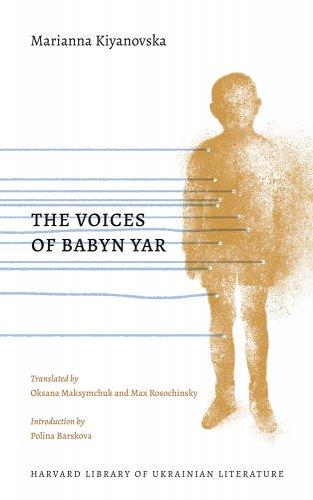The Voices of Babyn Yar - IAS Alumni receive Best Translation Prize by the American Association for Ukrainian Studies

"There is no doubt that The Voices of Babyn Yar is destined to become a classic text in the Ukrainian canon. Will this poetry save nations or people? Of course not. But it will forever serve as a reminder of the human capacity for evil—a prompt we seem to require on a regular basis." - Askold Melnyczuk, The Times Literary Supplement
Former fellows Oksana Maksymchuk (Writer in Residence 2020/21) and Max Rosochinsky (Junior Thyssen Fellow 2019/20) were awarded recently the Best Translation Prize by the American Association for Ukrainian Studies (AAUS) for their translation of The Voices of Babyn Yar by Marianna Kiyanovska (Harvard University Press 2022).
Maksymchuk and Rosochinsky co-edited as well volume under the title of Words for War: New Poems from Ukraine (Academic Studies Press, 2017), an anthology of contemporary Ukrainian poetry, reviewed in The Times Literary Supplement and featured in Paris Review and The New York Times.
Their translations have been featured in many other venues such as Modern Poetry in Translation, Words Without Borders, Poetry International and the Best European Fiction series from Dalkey Archive Press. In this context, they were also recognised for their co-translated work of Apricots of Donbas, a collection of selected poems by Lyuba Yakimchuk, which received favorable reviews from The New York Times and Washington Post, and was even read live during a performance at the 2022 Grammy Awards. Overall, Maksymchuk and Rosochinsky have won several other awards in the past, including the 2014 Joseph Brodsky-Stephen Spender competition, which is one of the top awards for poetic translation from the Russian language.
In a personal statement Maksymchuk and Rosochinsky emphasized that “the craft of translation is to transmit, convey, and amplify; to transplant and transport. And also, often, to make the voices of others—foreigners, strangers—at home in another language while at the same time allowing them to retain their otherworldliness, their strangeness. In translating Kiyanovska’s voices, we remembered that the so-called originals, rendered in refined contemporary Ukrainian, were transmissions— that is, translations, too."
